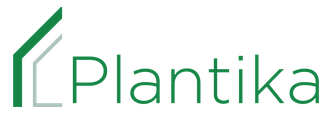EU directive on the energy efficiency of buildings: a step towards a more sustainable future
In April of this year, the EU took an important step towards improving the energy efficiency of buildings with Directive 2024/1275. This directive provides a comprehensive framework, applicable to all member states, to promote sustainable building practices and reduce energy consumption in Europe. The importance of this becomes clear, when you consider that, according to the text of the regulation, buildings account for 40% of energy consumption and 36% of energy-related greenhouse gases in the EU, while 75% of all buildings are still considered energy inefficient. To save you some time for having to read through the many paragraphs of the directive, we have summarized the most important points for you here:
- Increase in energy efficiency:
- New and existing buildings must be made more energy efficient. This is to be achieved through stricter standards such as a system for energy performance certificates for buildings (e.g. known as energy performance certificates in Austria) and innovative technologies such as solar cells and building greening.
- Promotion of renewable energies:
- The integration of renewable energies such as solar and wind power into building designs is being strongly promoted. The aim is to significantly increase their share in the building sector.
- Consideration of life cycle emissions:
- The entire life cycle emissions of construction projects should be taken into account. This includes the selection of materials, construction, use and ultimately the disposal of the building.
- Increase in the renovation rate:
- The directive aims to significantly increase the renovation rate of existing buildings. This should reduce energy consumption and improve the quality of life for residents.

Opportunity for building greening
A particular focus of the directive is on the greening of buildings. Green roofs and facades play a key role in improving the energy efficiency of buildings. In general they not only provide better thermal insulation, they also help to reduce urban heat islands and improve air quality. The greening of buildings also promotes biodiversity in urban areas, which in turn has a positive impact on the entire ecosystem.
Conclusio
With Directive 2024/1275, the European Union is demonstrating how important it is to promote sustainable construction practices and improve the energy efficiency of buildings. The greening of buildings is seen as a central element in this, offering numerous benefits for the environment and society. Further information on the directive can be found on the official EUR-Lex website.
Want to find out more about green roofs? Write to us in the comments or contact us directly.
